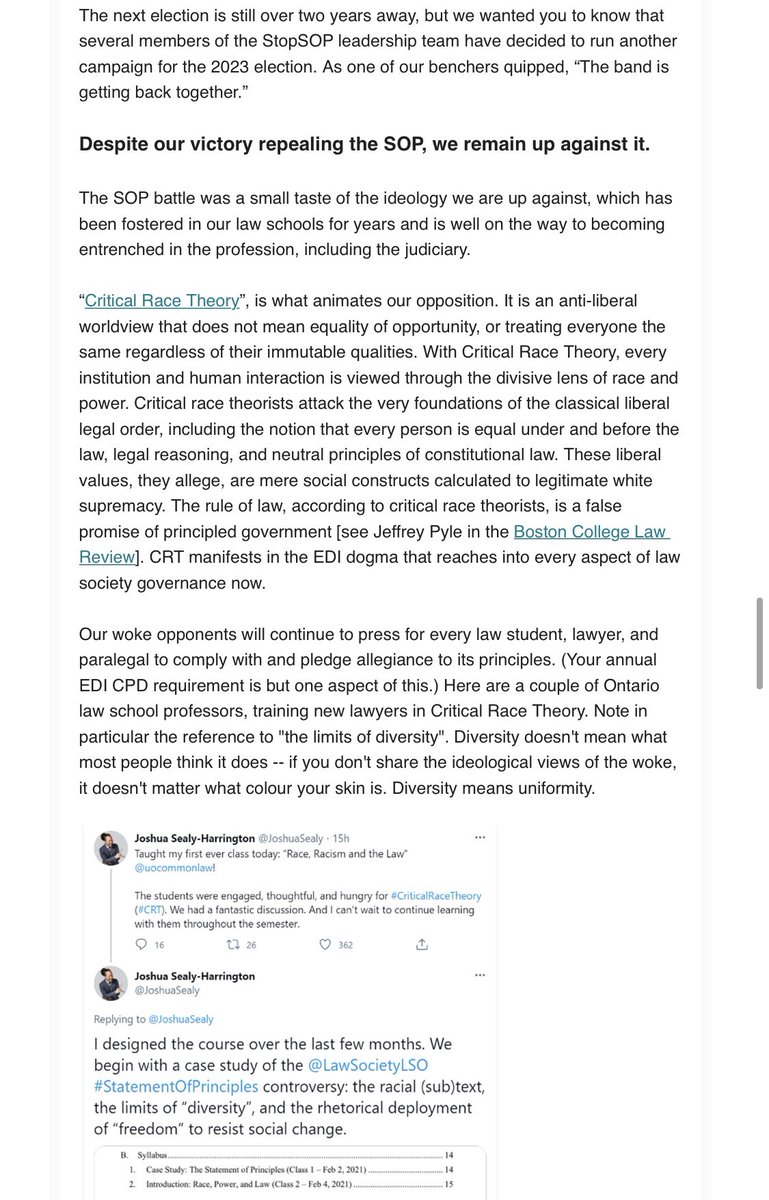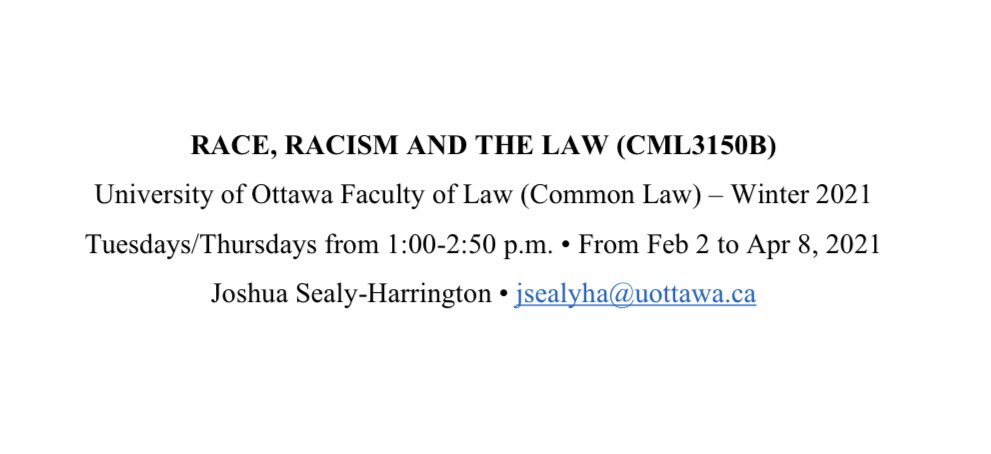
Just completed my first semester of teaching at the Lincoln Alexander School of Law (@RyersonULaw).
I collaborated w/ a brilliant group of students in “Foundations of Legal Theory”. They were courageous and engaged throughout a demanding semester of theoretical critique. 🧵
I collaborated w/ a brilliant group of students in “Foundations of Legal Theory”. They were courageous and engaged throughout a demanding semester of theoretical critique. 🧵

Part 1—Introduction—oriented us towards course themes. We read the Cromwell Report on the #UofTScandal & @initialvw’s critique to think about “objectivity” & the academy. We also listened to @theTILPodcast & put it in conversation w/ CLS, CRT, & Richard Posner’s CRT critique. 

Lastly, Part 1 concluded with analysis from @scottjshapiro, John Gardener, and Les Green’s introduction to “The Concept of Law” providing an overview of many core inquiries in jurisprudence. 

Part 2 of the course—“What is Law?”—started by considering “law” from inside and outside a colonial lens. We read SCC jurisprudence (Calder, Sparrow, Tsilhqot’in) & scholarship (Borrows’ “Sovereignty’s Alchemy” and Foster’s “Elevator Etiquette”) to examine colonial legal norms.
Next, we read a series of scholars—@sonialawprof, @DebraParkes, John Borrows, and Aaron Mills—to examine different perspectives and locations for the reconciliation/tension between colonial law and Indigenous legal orders. 

Then, we analyzed case law (Imperial Tobacco) and scholarship (Hart/Shapiro) on positive law, and likewise, case law (Sauvé), scholarship (Fuller/Shapiro) and legal instruments (the Charter’s preamble & the Declaration of Independence) on natural law.
Part 3 of the course—Interpretation—first looked at discussion of interpretive principles by Shapiro, Robert Cover, & Duncan Kennedy. Second, we considered meta-interpretive principles and explored various cases setting out examples of those principles (Edwards, Carter, Henry). 



Part 4 of the class—“Law and Politics”—began with critiquing the reason (law)/emotion (policy) dichotomy through media (Legally Blonde), scholarship (Dworkin, Weinrib, @emilykiddwhite), case law (Kattenburg, Sitladeen) & judicial statements (from Justices Abella and Jamal).
Next, we considered various interventions in legal scholarship, including CRT, feminist legal theory, poverty law/law and economics/law and political economy, critical disability theory, queer legal theory, intersectionality, trans legal theory, & int’l law/TWAIL/decolonization.
For each intervention, we juxtaposed case law w/ scholarship to examine how theory is essential to making sense of legal institutions/interpretation, e.g., reading LSBC v TWU thru the lens of @BrendaCossman’s scholarship, or Nevsun w/ guidance from @ntinatzouvala & @HarshaWalia.
Lastly, we examined various sites of socio-legal control: religion, the family, language, crime/abolition, access to justice, and the legal academy. Again, our typical approach was comparing case law with scholarship to see theory “in action” and use it to make sense of the law.
For example, in examining “the family”, we considered leading Canadian and American cases on polygamy, scholarship examining the interface of legal and cultural norms (by @cmathen & @ElizFEmens), and commentary about how those norms reflect settler perspectives (by @KimTallBear). 

Similarly, for crime/abolition we read case law (Chouhan), intervention submissions (@bccla & @AboriginalLS) and commentary (@policingblack, El Jones, @Pam_Palmater, @Reakash, @mmeenaakshii, @ayagruber) to critique carceral institutions and analyze their link to social control. 



It was such a joy engaging with new law students on the subtleties of legal theory and interpretation. At the beginning of law school, critiquing legal norms that students are just gaining familiarity with can be particularly complex. But they tackled these questions admirably.
Lastly, I am so grateful to @sjfranks & @dfrandsen_ for their spectacular assistance w/ the course. They provided indispensable guidance on Indigenous perspectives & legal orders, which profoundly nourished the course & taught me so much about the necessity of a decolonial lens.
• • •
Missing some Tweet in this thread? You can try to
force a refresh











